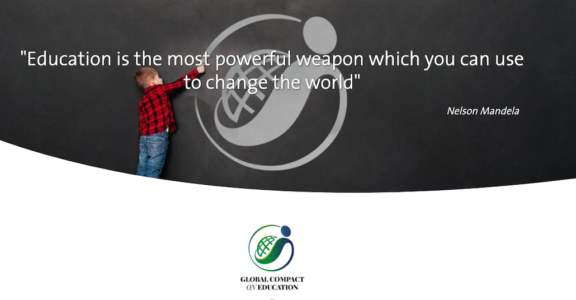
In the 30 years since its adoption, the Convention on the Rights of the Child (CRC) has considerably inspired governments and other actors to set legal policies and investments to give access to children to rights, such as the right to health care, the right to food and water and the right to education. Stronger safeguards have been put in place to protect children from violence and exploitation. This framework has enhanced participation and has also enabled children to engage in decision-making processes and policymaking.
As part of the series of events in Geneva marking the 30th anniversary of the CRC and recognising the increasingly crucial importance of education for the future of our world, the Holy See organised a side-event on “The Right to Education – Towards a renewed Commitment on Education”. A range of panelists spoke at the event including Cardinal Giuseppe Versaldi, Prefect of the Congregation for Catholic Education and Mr. Benyam Dawit Mezmur, a Member of the United Nations Committee on the Rights of the Child.
The important role in promoting the right to education played by the Catholic church was highlighted, through its network of more than 215,000 schools attended by over 60 million students, and 1750 Universities educating 5.5 million students worldwide.
Whilst States claim that primary education is free and compulsory it was noted that hidden costs meant that often primary education was not genuinely free, and serious concerns about the quality of education offered were also expressed.
In focussing on the important concerns of access to education, quality of education and drop-out rates (article 28 of the CRC) it was pointed out that often the important issues raised in Article 29 of the Convention were overlooked. These included the:
‘development of the child’s personality, talents, and mental and physical abilities to their fullest potential’,
the development of ‘respect for human rights and fundamental freedoms, and for the principles enshrined in the Charter of the United Nations’,
‘respect for the child’s parents, for his or her own cultural identity, language and values, for the national values of the country in which the child is living, the country from which he or she may originate, and for civilizations different from his or her own’, and one with particular resonance at the present time
‘respect for the natural environment’.
The event also noted the initiative of Pope Francis in launching a Global Compact on Education, to be issued in May 2020, which is intended to “renew our passion for a more open and inclusive education” and educate young people to learn to overcome divisions and conflicts, promote hospitality, justice and peace”.